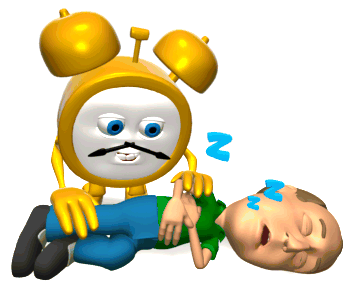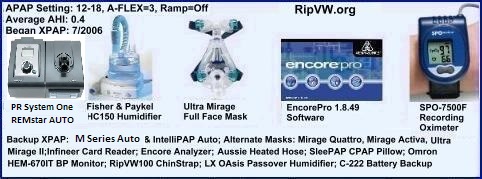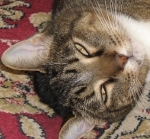Doc says no APAP, could cause centrals?
Re: Doc says no APAP, could cause centrals?
Respironics APAPs might be different than Resmed's. My deleted post was based on Resmed's Autoset.
_________________
| Humidifier: S9™ Series H5i™ Heated Humidifier with Climate Control |
| Additional Comments: S9 Autoset machine; Ruby chinstrap under the mask straps; ResScan 5.6 |
Last edited by avi123 on Thu Jul 14, 2011 4:58 pm, edited 2 times in total.
see my recent set-up and Statistics:
http://i.imgur.com/TewT8G9.png
see my recent ResScan treatment results:
http://i.imgur.com/3oia0EY.png
http://i.imgur.com/QEjvlVY.png
http://i.imgur.com/TewT8G9.png
see my recent ResScan treatment results:
http://i.imgur.com/3oia0EY.png
http://i.imgur.com/QEjvlVY.png
Re: Doc says no APAP, could cause centrals?
Here is a section of an interview with the designer of the Resmed Autosets which might relate to the question:
Why doesn’t ResMed's AutoSet respond to
apnea above 10 cmH2O in pressure?
I mentioned before that the higher the pressure,
the more central hypopneas you will have. At a
pressure somewhere around 10 cmH2O, the central
hypopneas become central apneas. On the other
hand, the vast majority of obstructive apneas are
already well controlled by 10 cmH2O, and we are
only fine tuning using snoring and flattening. So it
is a pretty good bet that if the pressure is already
above 10 cmH2O, any apneas are most likely
central, and you should leave them alone (except
in patients with central apneas due to heart failure).
But if the pressure is below 10 cmH2O, most
apneas will be obstructive and you should put the
pressure up. There’s nothing magical about 10
cmH2O, it’s just a good place to put the line in the
the sand.
Why doesn’t ResMed's AutoSet respond to
apnea above 10 cmH2O in pressure?
I mentioned before that the higher the pressure,
the more central hypopneas you will have. At a
pressure somewhere around 10 cmH2O, the central
hypopneas become central apneas. On the other
hand, the vast majority of obstructive apneas are
already well controlled by 10 cmH2O, and we are
only fine tuning using snoring and flattening. So it
is a pretty good bet that if the pressure is already
above 10 cmH2O, any apneas are most likely
central, and you should leave them alone (except
in patients with central apneas due to heart failure).
But if the pressure is below 10 cmH2O, most
apneas will be obstructive and you should put the
pressure up. There’s nothing magical about 10
cmH2O, it’s just a good place to put the line in the
the sand.
_________________
| Humidifier: S9™ Series H5i™ Heated Humidifier with Climate Control |
| Additional Comments: S9 Autoset machine; Ruby chinstrap under the mask straps; ResScan 5.6 |
see my recent set-up and Statistics:
http://i.imgur.com/TewT8G9.png
see my recent ResScan treatment results:
http://i.imgur.com/3oia0EY.png
http://i.imgur.com/QEjvlVY.png
http://i.imgur.com/TewT8G9.png
see my recent ResScan treatment results:
http://i.imgur.com/3oia0EY.png
http://i.imgur.com/QEjvlVY.png
Re: Doc says no APAP, could cause centrals?
For the S9 algorithm, the approach changed - ResMed tried to distinguise central from obstructive apneas, and will raise pressure in response to obstructive apneas, even when they appear at a pressure above 10.
The S8 algorithm responded to all apnea below 10 - the s9 is selective both below 10 and above it.
The S8 algorithm responded to all apnea below 10 - the s9 is selective both below 10 and above it.
_________________
| Mask: AirFit™ P10 Nasal Pillow CPAP Mask with Headgear |
| Additional Comments: Machine: Resmed AirSense10 for Her with Climateline heated hose ; alternating masks. |
And now here is my secret, a very simple secret; it is only with the heart that one can see rightly, what is essential is invisible to the eye.
Antoine de Saint-Exupery
Good advice is compromised by missing data
Forum member Dog Slobber Nov. 2023
Antoine de Saint-Exupery
Good advice is compromised by missing data
Forum member Dog Slobber Nov. 2023
Re: Doc says no APAP, could cause centrals?
APAP has not been particularly well studied for treating conditions beyond OSA. Partly for that reason, anyone with a breathing condition beyond OSA that could affect OSA treatment (especially if that condition results in a tendency toward central apneas with the application of PAP) is generally considered "not a good candidate" for APAP, as I understand it.LarryD wrote:I don't understand how APAP's can cause CSA's. Is there any scientific info out there?
People who have a tendency toward having a large amount of disrupting central sleep apneas as a reaction to pressure but who need pressure anyway are generally prescribed CPAP at a steady pressure to see if their bodies eventually adjust to it. If that doesn't happen but PAP pressure is needed in their treatment anyway, then there are machines designed especially for that, such as ASV machines.
I believe that some docs just plain don't like APAPs on principle for anyone ever, and so they may defend their position to ALL patients, even patients with nothing beyond simple OSA, by saying "APAPs can cause centrals." That is not a very honest thing to do, in my opinion.
On the other hand, however, I also believe those same exact words would be the exact right thing to say to a patient who has a tendency toward a lot of disrupting central apneas. That is because, for some patients, any amount of pressure is confusing enough to their nervous system without adding constant variations in pressure to the mix.
When large numbers of disrupting centrals are caused by the nervous system's inability to sense and react to blood chemistry (such as the amount of O2 and CO2 in the blood) in a timely and accurate manner, then there may be a need for as much consistency as possible in the pressure supplied to, or else the volume of air breathed by, the patient, in order to normalize breathing during sleep, in my opinion, based on my imperfect understanding.
I'm not a doc, though. Just another opinionated patient.
- JohnBFisher
- Posts: 3821
- Joined: Wed Oct 14, 2009 6:33 am
Re: Doc says no APAP, could cause centrals?
Well, as one patient who continues to try to learn, let me see if I can summarize the situation:
Can APAP devices trigger central apneas?
Yes. Some patients have an increase in central apneas when pressure is increased during the night. Not all patients. But some certainly do. For them a steady pressure, which allows minimal obstructions and REM sleep, is a better choice.
Do APAP devices always trigger central apneas?
Nope. Not all patients see an increase in central apneas when pressure increases.
Can your doctor tell for certain if you would have this problem?
Depends. If you showed signs of having higher than normal central apneas during the sleep study, he might decide you are a bad candidate for central apneas. Or your doctor might have just decided it is not worth the risk for any of his patients. And that's the crux of your situation. There is simply no way for us to know. If you showed signs of central apneas during your sleep study, then APAP would be the wrong way to go.
So, what would I do if I were in your shoes?
Given a similar situation, if I saw no other signs of problems - was sleeping well, feeling rested in the morning - then I would probably stay with the therapy prescribed. If however, you continue to struggle with fatigue or daytime sleepiness, then you certainly should continue to pursue the situation with your doctor. If that doctor does not seem to want to address the situation, then find another doctor who will get the job done.
Hope that helps.
Can APAP devices trigger central apneas?
Yes. Some patients have an increase in central apneas when pressure is increased during the night. Not all patients. But some certainly do. For them a steady pressure, which allows minimal obstructions and REM sleep, is a better choice.
Do APAP devices always trigger central apneas?
Nope. Not all patients see an increase in central apneas when pressure increases.
Can your doctor tell for certain if you would have this problem?
Depends. If you showed signs of having higher than normal central apneas during the sleep study, he might decide you are a bad candidate for central apneas. Or your doctor might have just decided it is not worth the risk for any of his patients. And that's the crux of your situation. There is simply no way for us to know. If you showed signs of central apneas during your sleep study, then APAP would be the wrong way to go.
So, what would I do if I were in your shoes?
Given a similar situation, if I saw no other signs of problems - was sleeping well, feeling rested in the morning - then I would probably stay with the therapy prescribed. If however, you continue to struggle with fatigue or daytime sleepiness, then you certainly should continue to pursue the situation with your doctor. If that doctor does not seem to want to address the situation, then find another doctor who will get the job done.
Hope that helps.
_________________
| Mask: Quattro™ FX Full Face CPAP Mask with Headgear |
| Additional Comments: User of xPAP therapy for over 20 yrs. Resmed & Respironics ASV units with EEP=9cm-14cm H2O; PSmin=4cm H2O; PSmax=15cm H2O; Max=25cm H2O |
"I get up. I walk. I fall down. Meanwhile, I keep dancing” from Rabbi Hillel
"I wish to paint in such a manner as if I were photographing dreams." from Zdzisław Beksiński
"I wish to paint in such a manner as if I were photographing dreams." from Zdzisław Beksiński
- Bright Choice
- Posts: 596
- Joined: Fri Jan 14, 2011 5:17 pm
Re: Doc says no APAP, could cause centrals?
fwiw - I experienced pressure induced centrals with CPAP (not apap). If they continue and you are not feeling better I would definitely check them out. Although complex sleep apnea is not common (centrals induced by xpap) and often go away after a period of time on xpap, sometimes they don't. In my case I was switched to S9 vpap adapt because of compsa and am doing great. AHI is a flatline at zero and spo2 desats have disappeared. I am no longer feeling terrible during the day and awake feeling rested.
Good luck!
Good luck!
_________________
| Mask: Mirage™ FX For Her Nasal CPAP Mask with Headgear |
| Humidifier: S9™ Series H5i™ Heated Humidifier with Climate Control |
| Additional Comments: S9 VPAP Adapt, CompSA, RLS/PLMD, Insomnia, started 12/30/10 Rescan 3.14 |
Re: Doc says no APAP, could cause centrals?
Been using my APAP for years--never had a central, don't know what that's about! Here are some advantages of APAP:
What is an Auto-Adjusting CPAP?
Auto Adjusting CPAP machines, also known as APAPs, have the ability to provide the right amount of pressure to keep your airway open. A sleep study to determine optimum pressure is not normally needed if an APAP is prescribed. An APAP is designed to deliver your ideal pressure, on a breath by breath basis, increasing pressure when it's too low and decreasing pressure when it's too high. An APAP can be run in CPAP mode, where the machine blows one constant pressure, or in Auto mode, where it adjusts the pressure to meet your specific needs. These machines are typically software capable, or 'smart' machines, which can help you and your doctor fine tune your Obstructive Sleep Apnea therapy and monitor for effectiveness.
________________________________________
Why Would My Pressure Needs Change?
Your pressure needs can change, either in the same night or over a period of time, depending on many factors. These factors include:
• Weight gain or loss. Even a small increase or decrease in your body mass can change the amount of pressure you need.
• More tired than usual. Worked a 15 hour shift when you are used to 8 hours? Help a friend move one Saturday? Spend all day playing softball in the heat? Or maybe you're just plain worn out? Being more tired than normal can affect your pressure needs.
• Changes in your sleeping position. Do you move around in your sleep a lot? Sleep on your back, then change to your side? Curl up and then later stretch out? The position you sleep in can change your pressure requirements.
• Alcohol consumption. Throwing back a few cocktails before bed can easily lead to a need for a slightly higher pressure requirement than usual.
• Medications with sedative effects. Certain medications may have sedative effects and could alter the amount of pressure required to prevent apneas and hypopneas.
• Congestion from illness or allergies. Having stuffy sinuses or congestion in your lungs may modify how much pressure is essential to keep your air passage open during sleep.
• Different stages of the sleep cycle. Pressure needs might be different during the various stages of the sleep cycle. For instance, you may need more pressure in the deep sleep phase compared to the REM sleep phase.
• Slight mask leaks or different masks. If you have a slight mask leak, an Auto-Adjusting CPAP machine can increase the pressure to compensate for the leak Also, different masks have different “leak rates” also called “vent flow rates”. Each mask leaks a certain amount of air through the exhaust or exhalation port. This is normal and is supposed to happen. The mask “leak rate” is usually published in the literature that comes with the mask. If the “leak rate” you see in your therapy data (using software) is above the published “leak rate”, then you know you are having issues with getting a proper seal.
• Altitude. The higher up in altitude that we sleep, the harder the machine must blow to keep the airway open. While most CPAP machines have Manual or Automatic Altitude Adjustment that will work for altitudes typically up to 9000 feet, you can feel confident with an APAP that you are getting enough pressure to ensure your air passage is kept open.
• Various other factors. Stressed? Jet-lag? Sleeping in a strange place? Super-relaxed lately? Frequent Naps? All of these, and other circumstances, can lead to the need for different pressure requirements.
________________________________________
Benefits of Using an APAP Machine
The most obvious benefit is that an APAP machine can deliver the “right” amount of pressure at the “right” time and can respond to your ever-changing pressure needs or events, preventing them or adjusting as necessary. Ultimately, this should lead to less apnea and hypopnea events and a more effective therapy. Another added benefit is that you only get the minimum amount of pressure necessary at a given moment, which is quite nice if your “normal” pressure setting is on the high side.
An Auto Adjusting CPAP can sometimes help to eliminate or reduce aerophagia. Aerophagia is the swallowing of air which often leads to uncomfortable gassiness or bloating. The fact that APAP machines can be run in CPAP or APAP mode, and have advanced therapy tracking with the optional software, is another reason these machines are so popular. This is especially true for CPAP users who take an active role in their own therapy.
Lastly, using an APAP machine may reduce the need for subsequent and expensive sleep studies. The software data can be given to your doctor or Respiratory Therapist for a professional interpretation and then used, perhaps in conjunction with a Pulse Oximeter, to determine therapy effectiveness and the best course of action for each particular individual.
While APAP machines are slightly more expensive than the straight CPAP machines, we believe the benefits are worth the extra money for many CPAP users.

What is an Auto-Adjusting CPAP?
Auto Adjusting CPAP machines, also known as APAPs, have the ability to provide the right amount of pressure to keep your airway open. A sleep study to determine optimum pressure is not normally needed if an APAP is prescribed. An APAP is designed to deliver your ideal pressure, on a breath by breath basis, increasing pressure when it's too low and decreasing pressure when it's too high. An APAP can be run in CPAP mode, where the machine blows one constant pressure, or in Auto mode, where it adjusts the pressure to meet your specific needs. These machines are typically software capable, or 'smart' machines, which can help you and your doctor fine tune your Obstructive Sleep Apnea therapy and monitor for effectiveness.
________________________________________
Why Would My Pressure Needs Change?
Your pressure needs can change, either in the same night or over a period of time, depending on many factors. These factors include:
• Weight gain or loss. Even a small increase or decrease in your body mass can change the amount of pressure you need.
• More tired than usual. Worked a 15 hour shift when you are used to 8 hours? Help a friend move one Saturday? Spend all day playing softball in the heat? Or maybe you're just plain worn out? Being more tired than normal can affect your pressure needs.
• Changes in your sleeping position. Do you move around in your sleep a lot? Sleep on your back, then change to your side? Curl up and then later stretch out? The position you sleep in can change your pressure requirements.
• Alcohol consumption. Throwing back a few cocktails before bed can easily lead to a need for a slightly higher pressure requirement than usual.
• Medications with sedative effects. Certain medications may have sedative effects and could alter the amount of pressure required to prevent apneas and hypopneas.
• Congestion from illness or allergies. Having stuffy sinuses or congestion in your lungs may modify how much pressure is essential to keep your air passage open during sleep.
• Different stages of the sleep cycle. Pressure needs might be different during the various stages of the sleep cycle. For instance, you may need more pressure in the deep sleep phase compared to the REM sleep phase.
• Slight mask leaks or different masks. If you have a slight mask leak, an Auto-Adjusting CPAP machine can increase the pressure to compensate for the leak Also, different masks have different “leak rates” also called “vent flow rates”. Each mask leaks a certain amount of air through the exhaust or exhalation port. This is normal and is supposed to happen. The mask “leak rate” is usually published in the literature that comes with the mask. If the “leak rate” you see in your therapy data (using software) is above the published “leak rate”, then you know you are having issues with getting a proper seal.
• Altitude. The higher up in altitude that we sleep, the harder the machine must blow to keep the airway open. While most CPAP machines have Manual or Automatic Altitude Adjustment that will work for altitudes typically up to 9000 feet, you can feel confident with an APAP that you are getting enough pressure to ensure your air passage is kept open.
• Various other factors. Stressed? Jet-lag? Sleeping in a strange place? Super-relaxed lately? Frequent Naps? All of these, and other circumstances, can lead to the need for different pressure requirements.
________________________________________
Benefits of Using an APAP Machine
The most obvious benefit is that an APAP machine can deliver the “right” amount of pressure at the “right” time and can respond to your ever-changing pressure needs or events, preventing them or adjusting as necessary. Ultimately, this should lead to less apnea and hypopnea events and a more effective therapy. Another added benefit is that you only get the minimum amount of pressure necessary at a given moment, which is quite nice if your “normal” pressure setting is on the high side.
An Auto Adjusting CPAP can sometimes help to eliminate or reduce aerophagia. Aerophagia is the swallowing of air which often leads to uncomfortable gassiness or bloating. The fact that APAP machines can be run in CPAP or APAP mode, and have advanced therapy tracking with the optional software, is another reason these machines are so popular. This is especially true for CPAP users who take an active role in their own therapy.
Lastly, using an APAP machine may reduce the need for subsequent and expensive sleep studies. The software data can be given to your doctor or Respiratory Therapist for a professional interpretation and then used, perhaps in conjunction with a Pulse Oximeter, to determine therapy effectiveness and the best course of action for each particular individual.
While APAP machines are slightly more expensive than the straight CPAP machines, we believe the benefits are worth the extra money for many CPAP users.

Re: Doc says no APAP, could cause centrals?
Thanks rested gal for the links. I have a better understanding of Central Apneas now. Looks like there's a need for more research.
_________________
| Mask: Swift™ FX Nasal Pillow CPAP Mask with Headgear |
| Additional Comments: SmartLink upgraded to version 2.5.6. Using CMS 50D+ Oximeter and Respironics SimplyGo POC |













